After losing her job at a U.S. newspaper, a French photographer joined the circus and documented life on the road while gaining a family.
When she joined the circus, Valerie Berta joined a family. For nine months out of the year, she lived with people from across the globe, traveling from Texas to Massachusetts for nine months out of the year, seven days a week. But inside this eclectic tribe, where hard work is a constant, she was also creating her own family: she was pregnant with her first child. “The Mudshow Diaries” is a photographic journal of the years she spent following her husband, the acrobat Fridman Torales, across the country, and raising her two sons under the tent of the Kelly Miller circus. She spoke to R&K from her home in Missouri.
Roads & Kingdoms: How did you get involved with the circus?
Valerie Berta: I was working in a newspaper in a small town in Illinois called Jacksonville. I had just started and about two weeks into that job, the circus came to town. At the time, it was still a great photo newspaper so they insisted on having three features every day in this town of about 12,000 people. So when the circus comes to town, you jump on it. I had just come back from freelancing in Peru for the presidential elections back in 2000, and when I went to the circus I found out that most of their crew and some of the management were from Peru, so I was just elated. And one of the people I talked to the very first time I walked into the tent was the guy who became my husband. I gave him my contact number… And the rest is history. We started dating long-distance and I went to work in Southern California at a newspaper but I was laid off in the first wave of economic layoffs in the newspaper industry. That’s when I decided to run away with the circus.
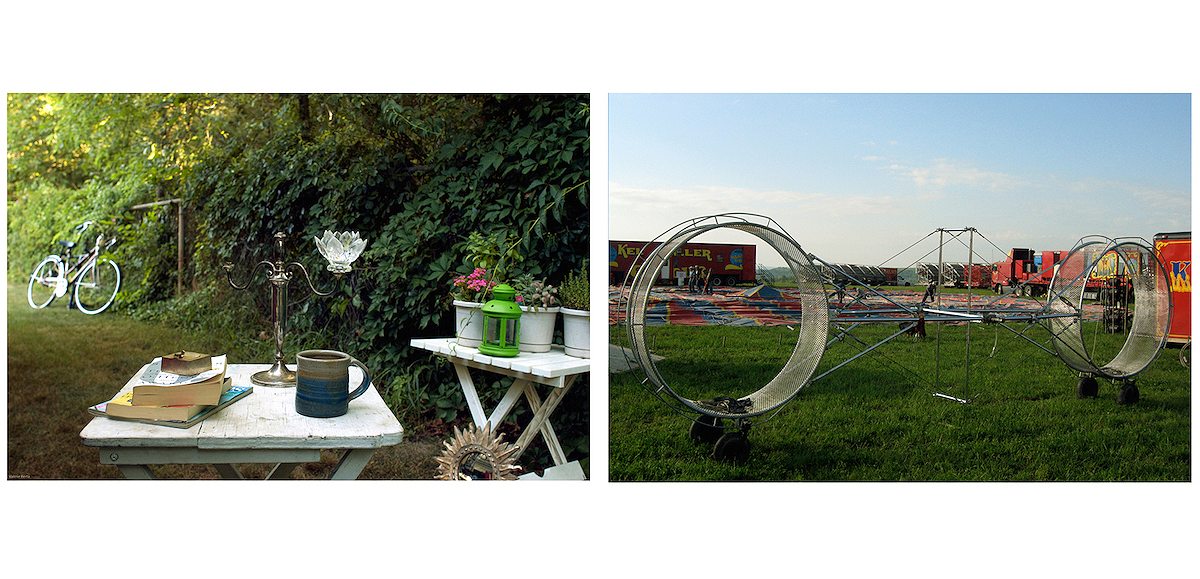
R&K: Did you have any connection with the circus before that?
Berta: No. I have this memory but it’s kind of vague, of being a little girl maybe eight or nine years old. I grew up in Nice and I remember my mother brought me to the circus. I remember talking to the guy who was taking the tickets and just wanting to go backstage to see what was going on. I don’t even remember if I went, I just remember that excitement and wanting to see what goes on behind the scenes. Other than that, nothing connecting me to the circus whatsoever.
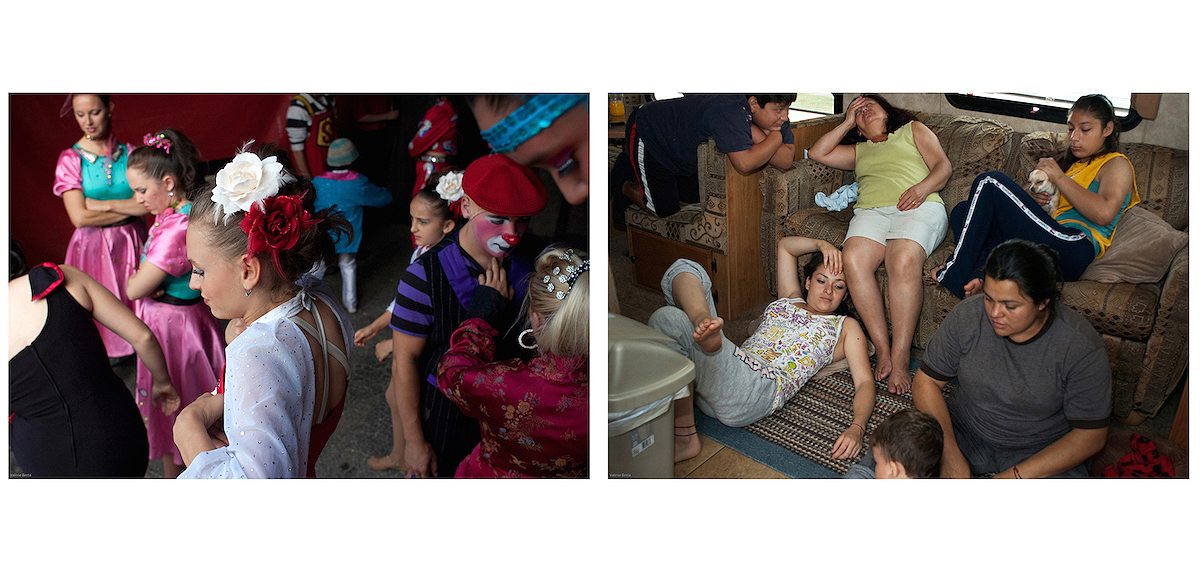
R&K: What were your first impressions of this circus?
Berta: The number of tented circuses in America is dwindling. There are a lot of little shows that perform in buildings and then there’s a few tented ones, those are the big names like Big Apple, Ringling of course but Ringling only has one unit that is a tented show, the rest is kind of an industry. But little independent circuses, there are only three. One of them is the one that my husband worked on: Carson & Barnes. This circus was five rings, so I was surprised by the sheer size of it. I was also amazed by the work, and I still am. These American tented circuses, including the one he was with and the one he’s with now, Kelly Miller, they move everyday and they cover between 30 to 110 miles every day. The Kelly Miller circus has one stage, but still it’s a big tent, so every day they put up the tent and they bring it down. Every day for nine months. It’s a crazy rhythm. And the final thing that surprised me was that there were a lot of immigrants in that milieu—Latin Americans, Chinese, Mongolians, Africans… That was the first thing that really interested me in terms of documentary work.
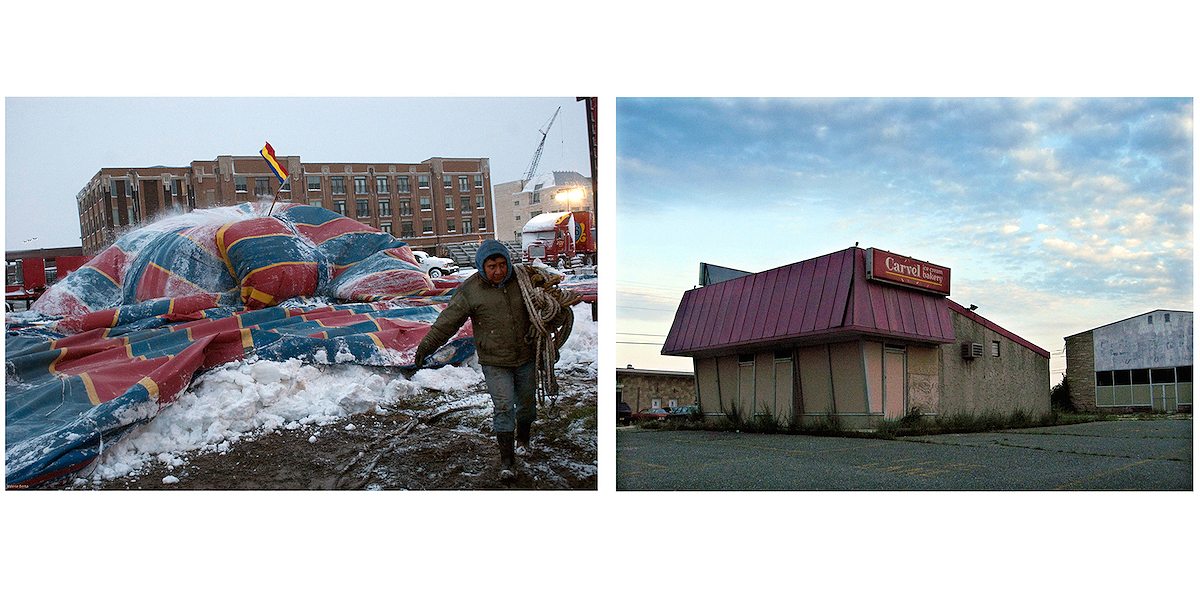
R&K: Can you tell us more about the people you met there?
Berta: There’s usually a family that dominates the crew and all the technical aspects like raising the tent, electricity, the water, etc. It’s unforgiving work. It’s literally backbreaking because you have to carry these enormous poles that support the tent every day morning and night, it’s just ridiculous work. With performers, management looks for the best acts they can find so it’s not necessarily somebody they know, it’s just whoever sends the best video. They can be from Russia, Mongolia, China, France, Mexico, Peru, anywhere…
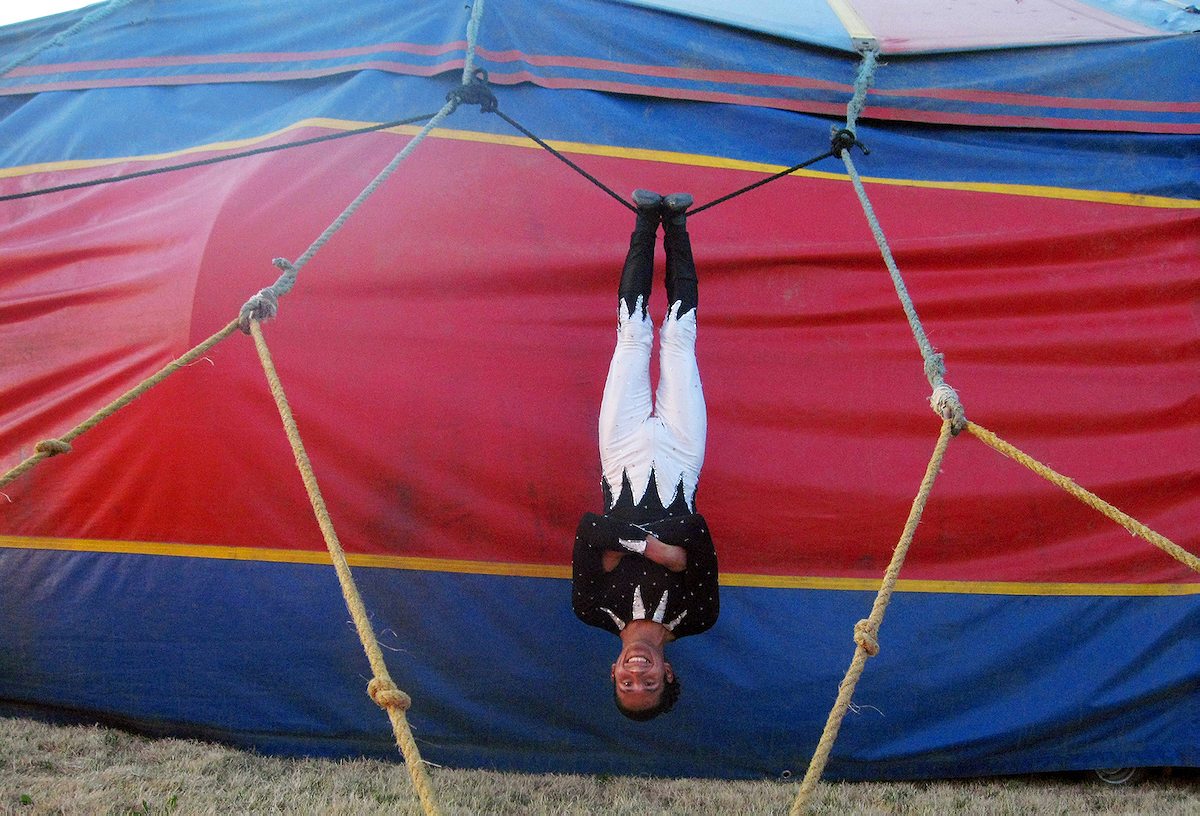
R&K: Tell me about your first few months on the road, what were you doing? Thinking about?
Berta: It was tough. It was really tough. I had just given birth to my first son. I was 40 and I had worked or I studied all my life, and all of a sudden I was out of my element because I was in a circus, and because I had a baby. It was also tough on a practical level, I had to get him to sleep through the night and at the time, our show moved at night. This project was a way to cope with all of this, a way to keep me sane and connected to something I knew how to do. The minute I hit the road, I started writing and photographing. I had a friend from photojournalism school who lived in Providence that I reconnected with when I came to Rhode Island with the circus. She told me I was sitting on a gold mine and really made me see this thing as a serious project.
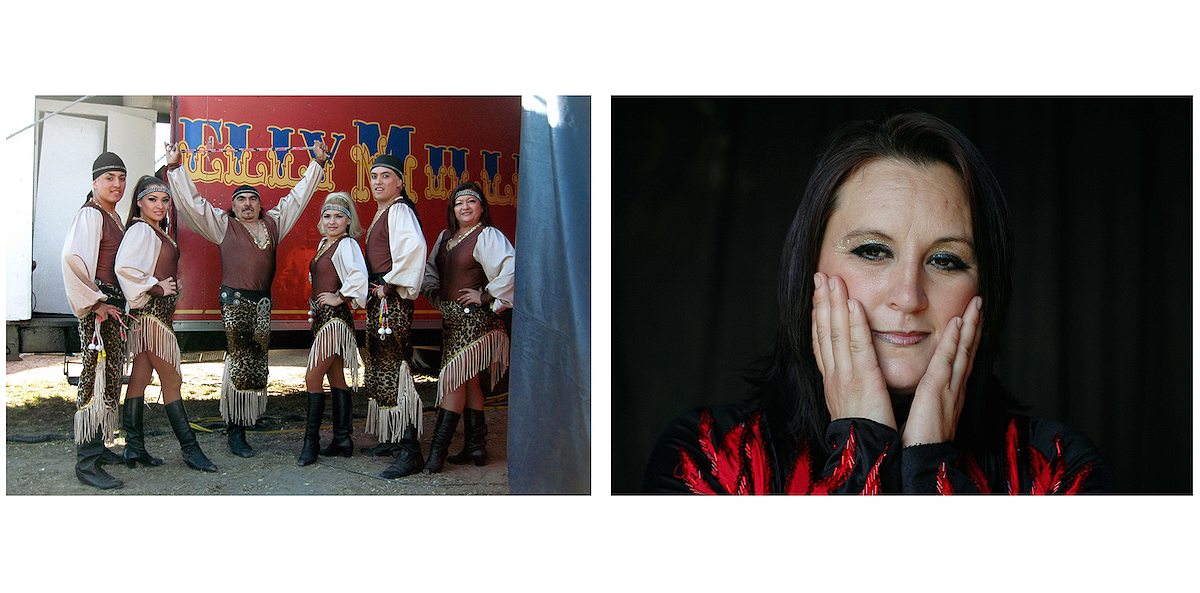
R&K: You had an incredible access.
Berta: Well, it’s a different access and it’s a great access but it’s not necessarily easier. Even if you know these people, every time you step into a trailer, it’s somebody’s private space and that has to be negotiated.
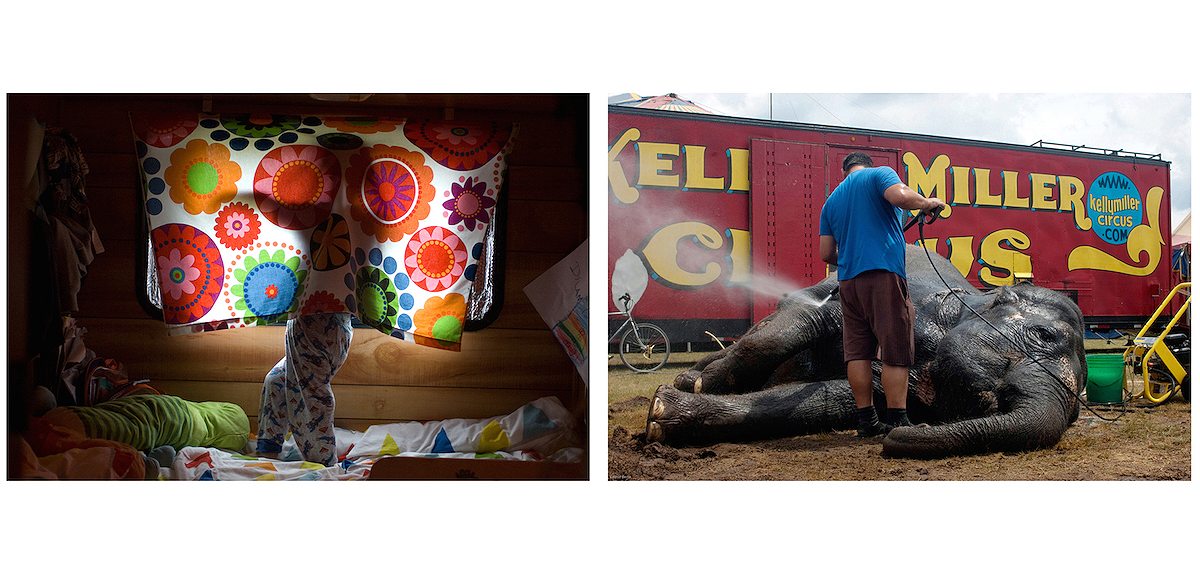
R&K: What is your husband doing on the show?
Berta: He’s an acrobat. Usually, when you’re only a performer, you can stay maybe two, three years maximum because the circuses have a specific route. You could do the same act the next year with a different costume or whatever, but the third year you have to find something else. Because they’ve kept him a few years, he’s worked to develop several acts along the way.
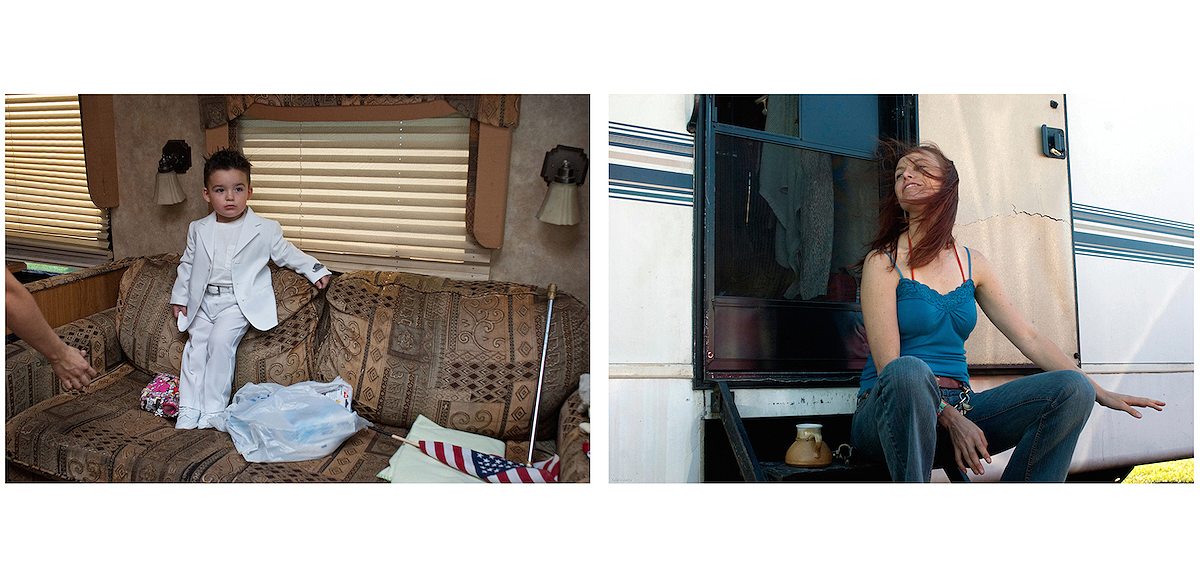
R&K: How popular were the shows? Do people still go to the circus?
Berta: There were days where only a few people showed up but my feeling was that it had to do more with bad advertising. Sometimes people wouldn’t even know we were there. So yes I think it the popularity of the circus is dwindling, but it definitely has a future because when people come, they love it.
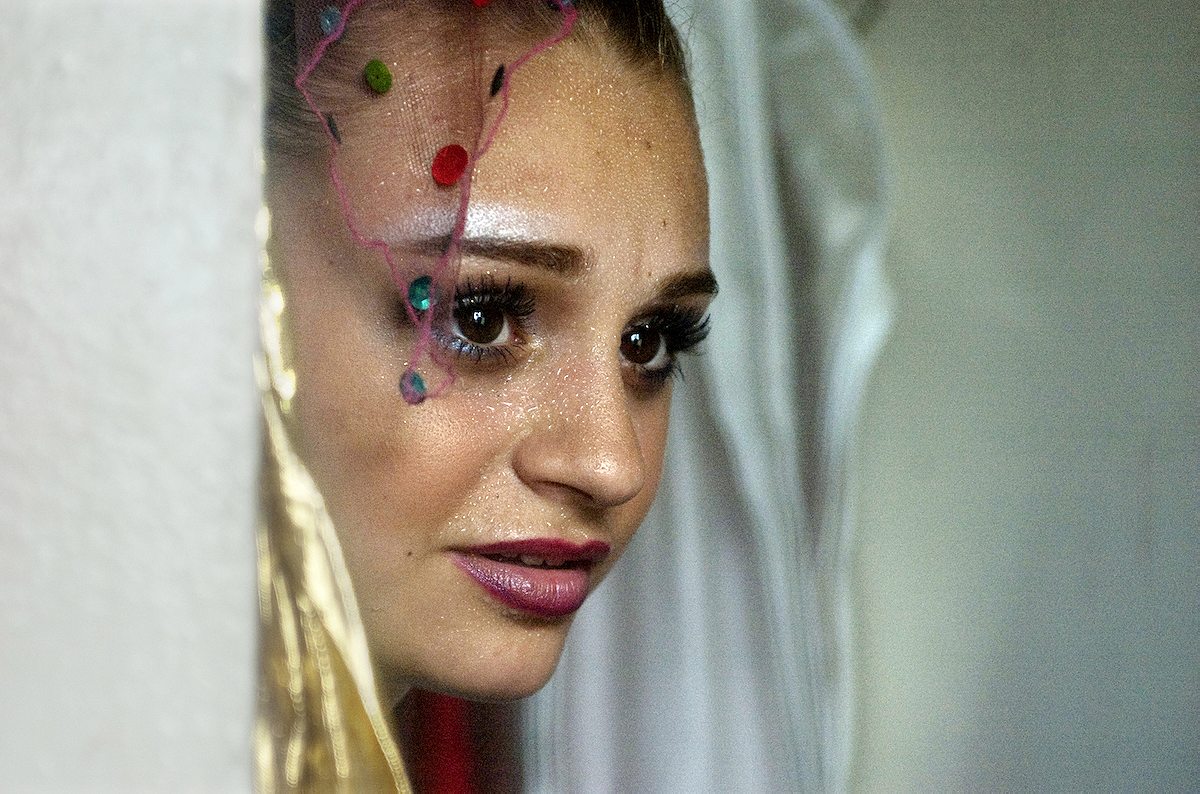
R&K: Did you get used to life on the road after a while?
Berta: Yes, when we joined this new circus. The owner is the only Ringling heir. He’s a wonderful guy and it was much easier making friends, finding a family there. The road also got a lot easier. The first few years, when you’re new on the show and the route, things like finding a Laundromat are a challenge. After a while it gets easier.
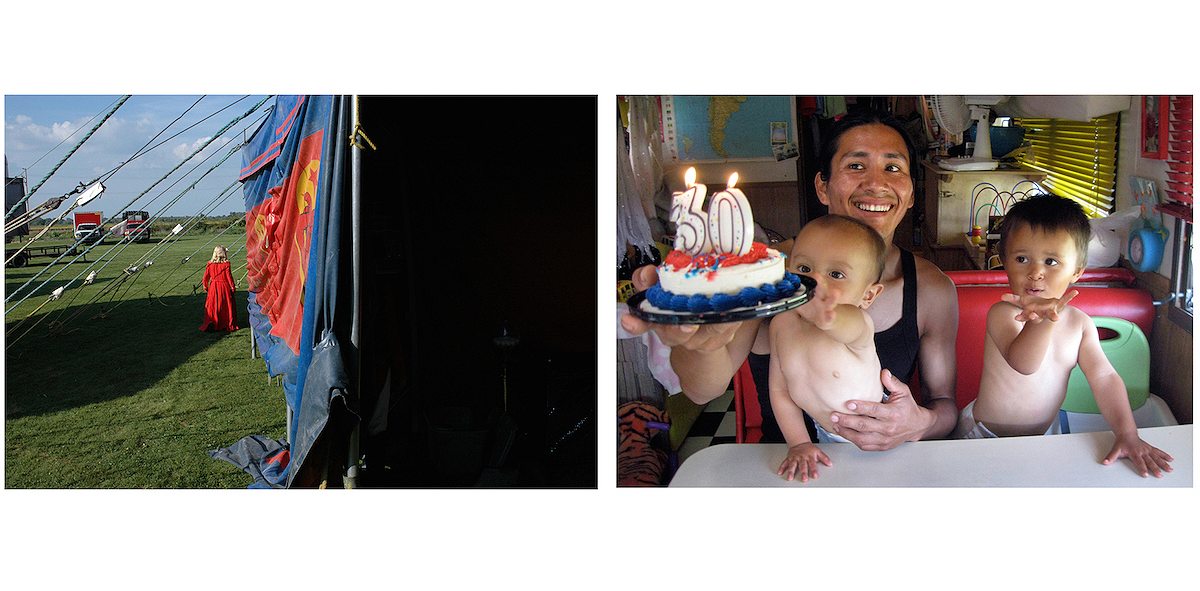
R&K: Did you discover a new side of the United States?
Berta: Yes, I had been here for many years on and off but what it really made me discover was really small town rural America because that’s all they do. That made me want to work on another project, which is the death of these little towns. You can see it very vividly. People are leaving them, one town in Indiana or Illinois, I just remember it so vividly, it was just physical. You could see the buildings crumbling, downtown was deserted… Some of these towns are just dying.
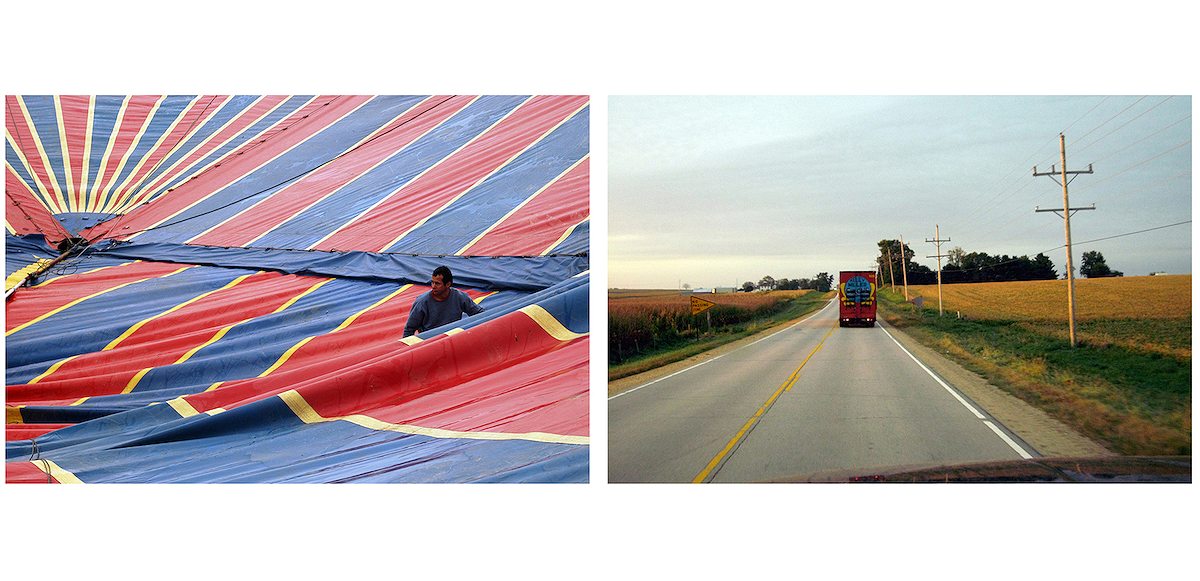
You can read the blog Valerie Berta kept on the road here or see more of her work here.